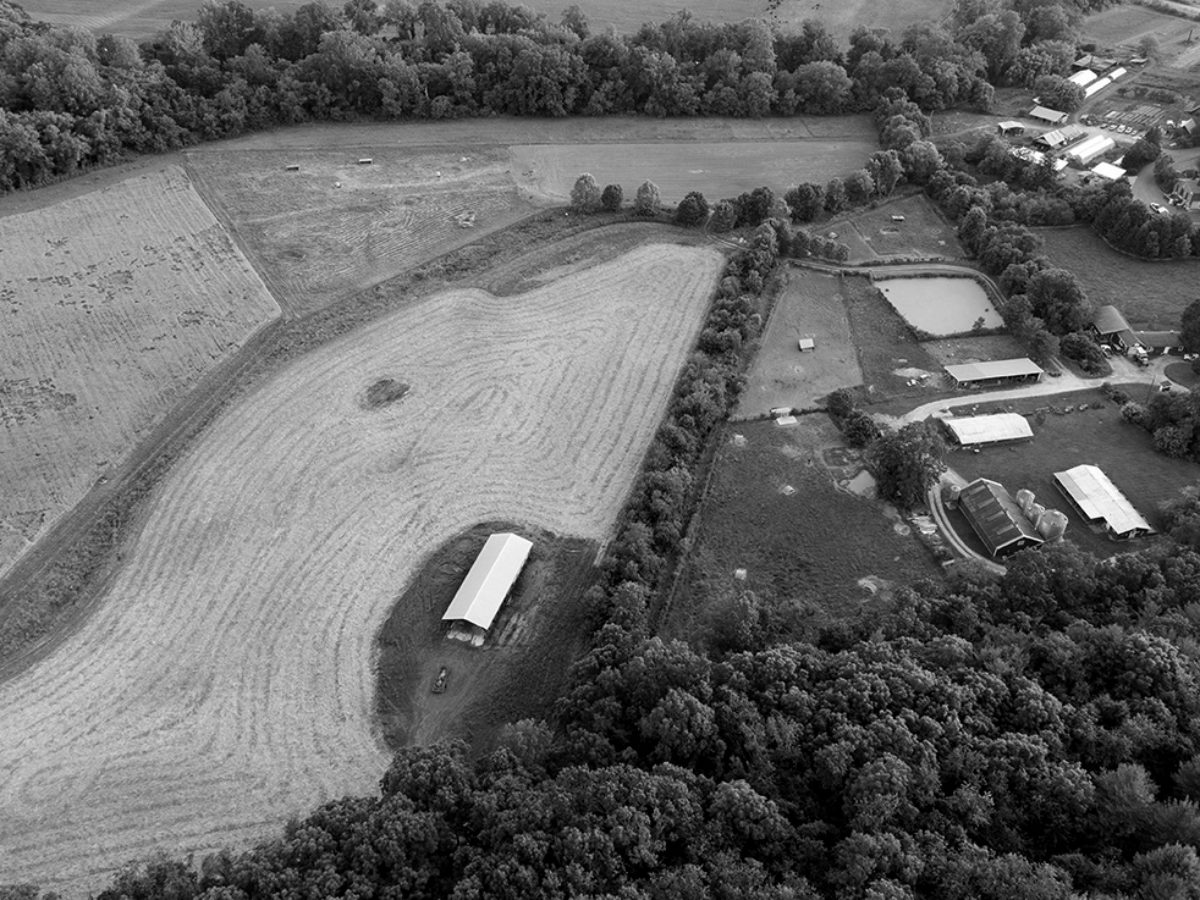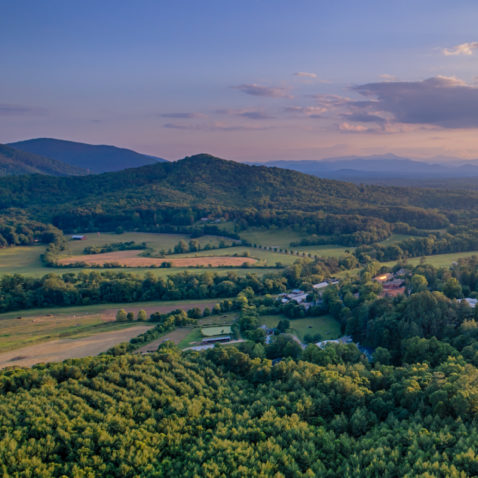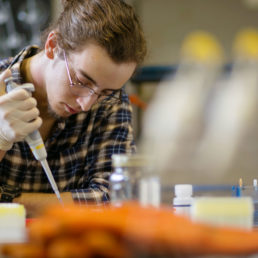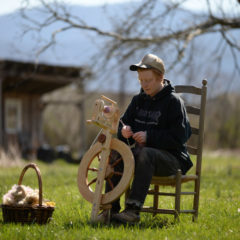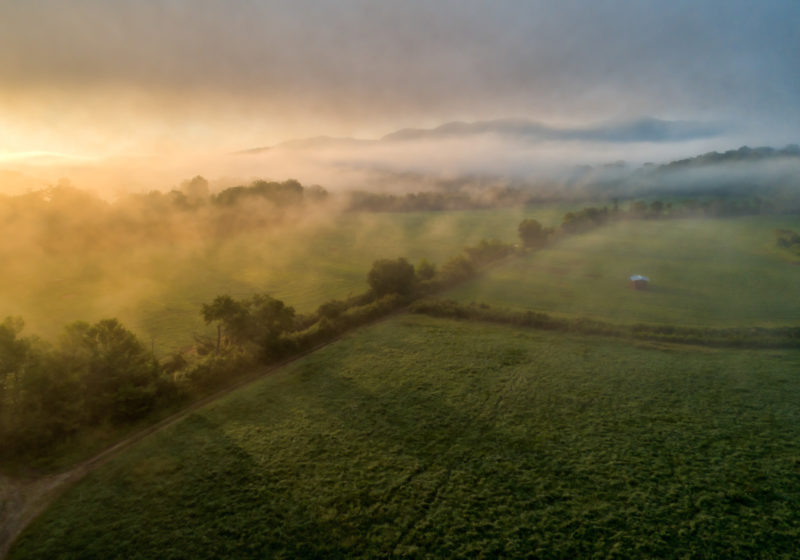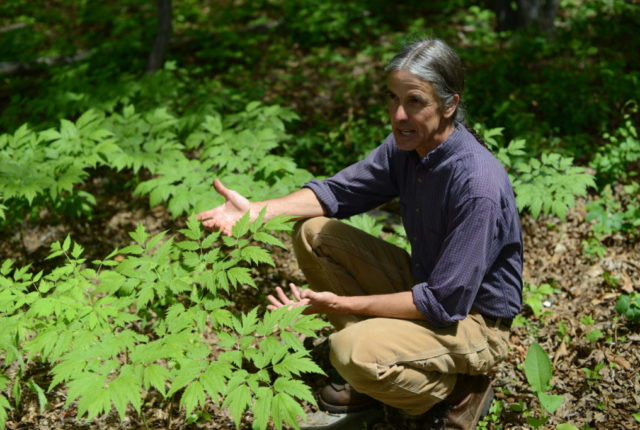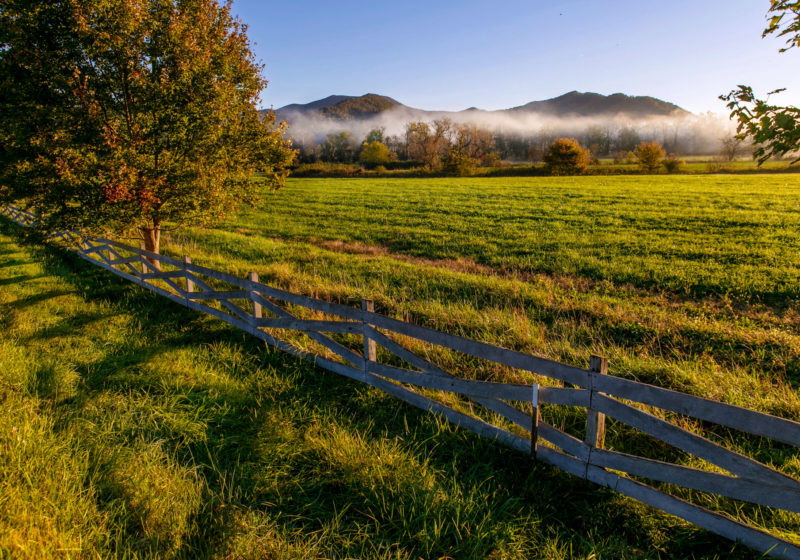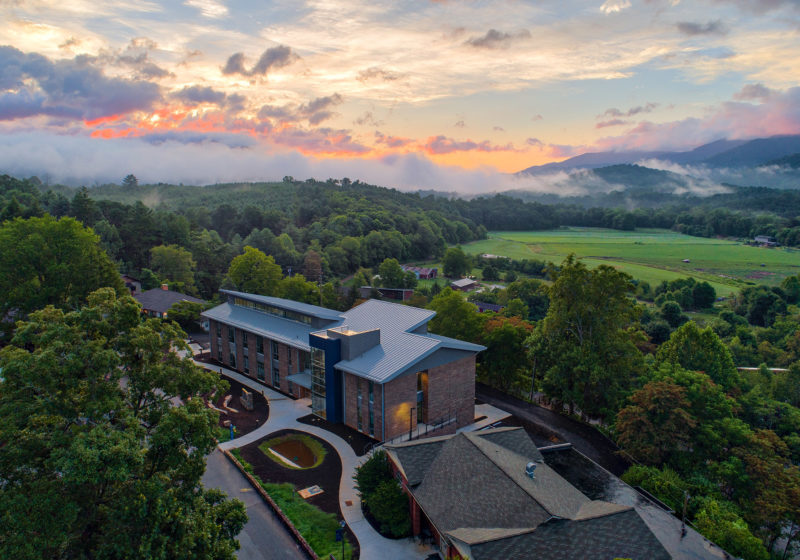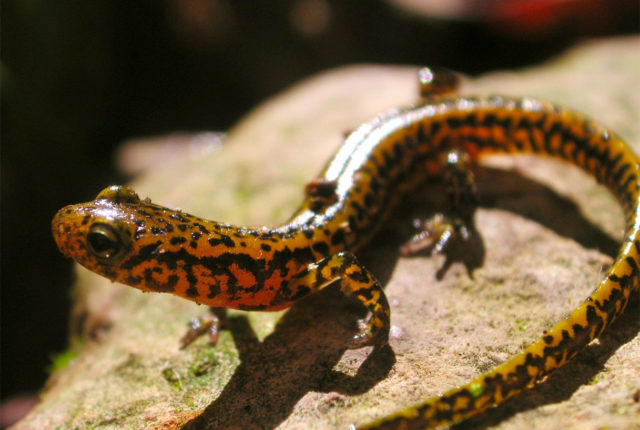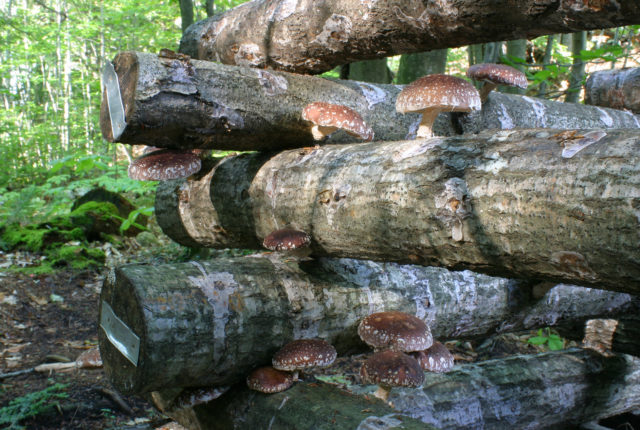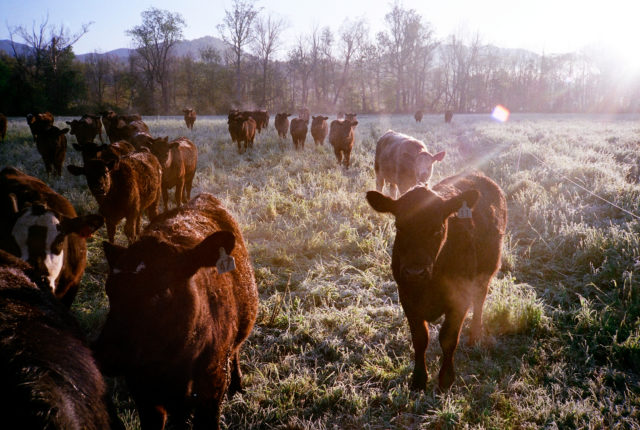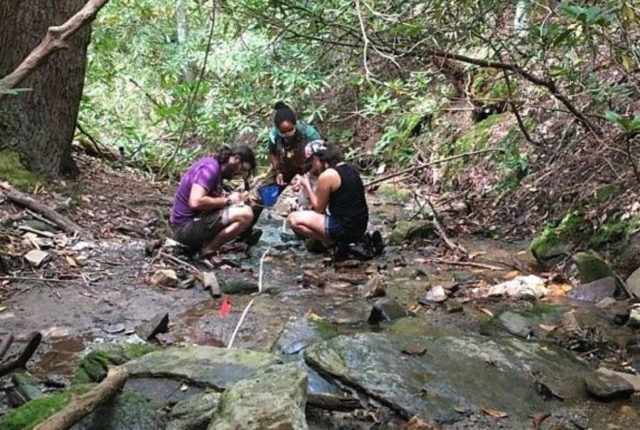Addressing Critical Needs
We know housing and commercial development in Western North Carolina is encroaching on the open spaces and natural communities.
我们知道,气候变化对低收入社区和有色人种社区的影响更大。
We know we need people who can deftly navigate the ecological, social, and economic realities of protecting our changing world and that inclusivity is at the heart of finding those solutions.
We know these things because Warren Wilson College has provided a leading Environmental Studies Program since the 1970s. We’ve turned knowledge into action through initiatives such asZero Waste,Real Food, andPresidents’ Climate Commitment.
We now have the opportunity to define and implement a curriculum in which the College campus itself can become the delivery system for, and the direct focus of, our academic programming.

